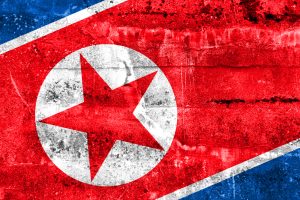Last month, Tomas Ojea Quintana, the U.N. special rapporteur on human rights in North Korea, called on the Security Council to ease sanctions against North Korea, citing the country’s dire humanitarian situation. Likewise, Russia and China introduced a proposal to lift portions of the sectoral sanctions that ban North Korean exports of statues, seafood, labor, and textiles — a similar proposal to the one introduced in 2019.
Lifting international sanctions against North Korea, however, will not address the country’s humanitarian crisis. Instead, countries should get smart about implementing sanctions obligations by ensuring that compliance does not disproportionately undermine humanitarian efforts.
The U.N. Office for the Coordination of Humanitarian Affairs estimated that nearly 40 percent of North Korea’s population need humanitarian assistance due to food insecurity, high malnutrition rates, and inadequate access to quality health care, clean water, and sanitation. Further compounding the country’s poor situation was its decision to shut down borders and restrict all travel to stave off COVID-19 outbreaks. Consequently, nearly all in-country humanitarian operations have ceased, resulting in a severely reduced capacity to monitor the humanitarian crisis. In a recent speech, Kim Jong Un reportedly described the situation as “grim” and “unprecedented,” further suggesting the need to mobilize labor. It was a rare admission by a usually reticent and unrevealing leader.
Lifting sanctions, however, will not alleviate North Korea’s humanitarian crisis.
Despite evidence to the contrary, Russia and China argue that lifting the overseas labor repatriation requirement would “enhance the livelihood of the civilian population.” This position simply ignores that North Korea’s overseas laborers are — in effect — forced laborers. They work back-breaking jobs in exchange for a pittance and squalid living quarters, only to see their earnings confiscated and sent back to the regime.
In early October, the U.N. Security Council released the latest report from the Panel of Experts on the North Korean sanctions regime. To be sure, the report also paints an equally depressing picture — pointing to official statements that summarized the country’s failure to fulfill its grain production quotas for the year as a “food crisis.” But unsurprisingly, the panel’s report also found that despite the growing humanitarian crisis, North Korea continued to make improvements to its nuclear and ballistic missile programs, procure goods and technologies for its weapons programs, illicitly import petroleum, and conduct a range of cyber operations aimed at hacking banks and exchange houses.
Lifting sanctions to relieve the humanitarian crisis is not only ineffective, but smacks of an all too expedient solution that glosses over the regime’s brutal history of diverting the country’s scarce resources to support its nuclear weapons and ballistic missile programs. When not spending on his nuclear weapons and ballistic missile programs, Kim Jong Un spends scarce resources on white elephant projects that most of the country will never benefit from.
Practically, North Korea remains under a range of autonomous sanctions that effectively freeze the country out of international trade and financial systems. That means, even if there were some forms of international sanctions relief, North Korea would still find itself unable to repatriate overseas earnings. The Financial Action Task Force, which is the international standard-setting body for financial crime still considers North Korea to be a “high risk” jurisdiction, citing serious flaws in the country’s anti-money laundering rules and regulations — as in, there are none.
Lifting sanctions is also somewhat of a moot point, given North Korea’s self-imposed border closures. Although there may be emerging signs that point to the county reopening trade along its border with China, others have concluded that the draconian measures have instead undermined humanitarian efforts.
Rather than lifting sanctions and giving material benefits to a regime that has no interest in giving up its nuclear weapons, a better approach is to effectively address points of failure. The first order of business is for the U.N. Security Council Sanctions Committee on North Korea to quickly find a solution to the lack of a stable banking channel for humanitarian work. As highlighted in the panel’s reports since 2017, the lack of a banking channel severely hamstrings aid workers’ ability to conduct in-country operations. In the absence of proper banking channels, humanitarian organizations have had to resort to alternative methods to move currency into North Korea, which puts personnel at risk. Interestingly, despite the political gridlock among the committee’s permanent members, establishing and ensuring a stable and transparent banking channel enjoys widespread support.
Second, sanctions “over-enforcement” is a concern that disproportionately affects humanitarian organizations. Humanitarian organizations’ responses to the Panel of Experts survey have claimed that Chinese customs authorities rarely know or understand the difference between prohibited goods and non-prohibited goods, often causing delays or rejecting humanitarian goods outright. Wheelchairs and metal crutches, for example, have been turned away at the border because they contain metal — ignoring the humanitarian exemptions allowed for under the resolutions. Humanitarian organizations have even reported that customs officials have, in many cases, solicited bribes.
Banks have a responsibility, too. Many humanitarian groups have reported being turned away by international banks just because the organization deals with North Korea. Such “de-risking” underscores the continued and persistent need to raise awareness among financial institutions about a risk-based approach to sanctions implementation. Not every group that conducts business with North Korea is a sanctions-evader. In fact, understanding risk when it comes to sanctions implementation and compliance is just as much about understanding what is not considered a risk.
North Korea’s humanitarian crisis is of its own making, but sanctions should not stand in the way of humanitarian aid. Lifting sanctions, however, does nothing to solve the country’s crisis and only serves to undermine the credibility of the Security Council by sending the wrong message. Moreover, it is unlikely that the United Kingdom, the United States, and France will view China and Russia’s proposal as anything other than acting to undermine the sanctions regime. Instead of lifting sanctions, getting smart about implementation by addressing the underlying problems will ultimately do more to benefit North Korea’s humanitarian crisis.

































